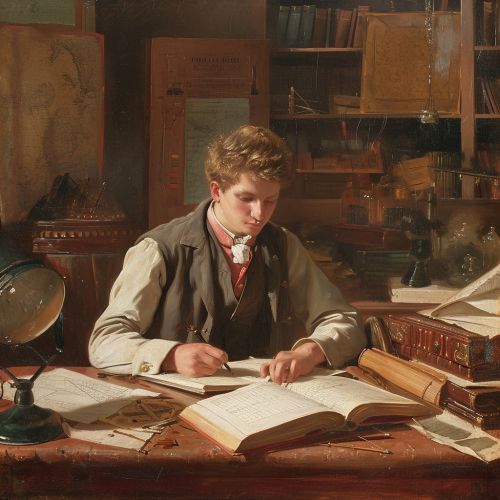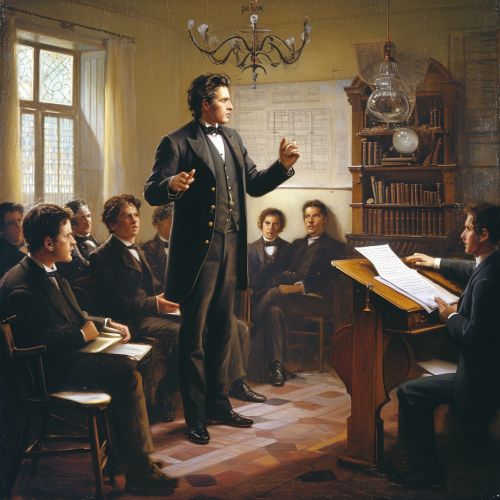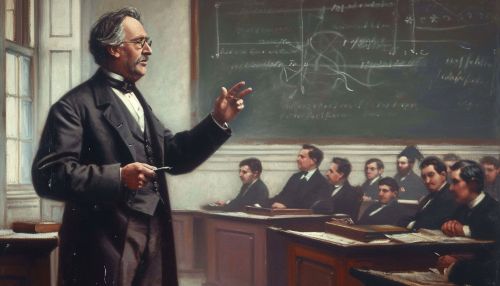Peter Gustav Lejeune Dirichlet
Early Life and Education
Peter Gustav Lejeune Dirichlet was born on February 13, 1805, in Düren, a small town in the Rhineland region of Germany. His father, Johann Arnold Lejeune Dirichlet, was a postmaster, merchant, and city councilor. His mother was Anna Elisabeth Lejeune Dirichlet, née Schüller. He was the seventh of nine children in the family.
Dirichlet's early education was provided at home by his father, who taught him the basics of arithmetic and surveying. At the age of 12, he was sent to the Gymnasium in Bonn, where he showed a strong aptitude for mathematics and languages.
In 1820, at the age of 15, Dirichlet moved to Cologne to attend the Jesuit Gymnasium. Here, he studied under Georg Ohm, who recognized his talent for mathematics and encouraged him to pursue it further. In 1822, Dirichlet moved to Paris to study mathematics at the Collège de France and the Faculté des Sciences de Paris, where he was influenced by the works of great mathematicians like Lagrange, Laplace, and Gauss.


Career and Contributions to Mathematics
Dirichlet began his professional career in 1825 when he was appointed to the position of a lecturer at the University of Breslau. However, he soon moved to the University of Berlin in 1828, where he spent the majority of his career.
Dirichlet is best known for his work in the field of number theory, particularly for his introduction of Dirichlet's theorem on arithmetic progressions. This theorem, which was a significant generalization of the prime number theorem, states that any arithmetic progression with a common difference and initial term that are relatively prime contains infinitely many prime numbers.
Dirichlet also made significant contributions to the field of analysis. He was the first to rigorously prove the convergence of Fourier series, which are used to represent functions as a series of sine and cosine terms. This work laid the foundation for the modern theory of Fourier analysis.
Dirichlet was also known for his work in potential theory, where he introduced the concept of a Dirichlet problem, a boundary value problem for Laplace's equation. This problem and its solutions have wide-ranging applications in physics, particularly in the study of heat conduction and fluid flow.
Later Life and Legacy
Dirichlet continued to teach and conduct research at the University of Berlin until 1855, when he was appointed to the prestigious position of professor at the University of Göttingen, succeeding his mentor Gauss. However, his time at Göttingen was cut short by his untimely death in 1859.
Dirichlet's contributions to mathematics have had a lasting impact. His work in number theory and analysis laid the groundwork for many developments in these fields. His methods and ideas continue to be used and expanded upon by mathematicians today.
Dirichlet was also known for his teaching. He was a dedicated and effective teacher, and many of his students went on to become prominent mathematicians themselves. Among his students were Kronecker and Lipschitz, who made significant contributions to the fields of algebra and analysis, respectively.


